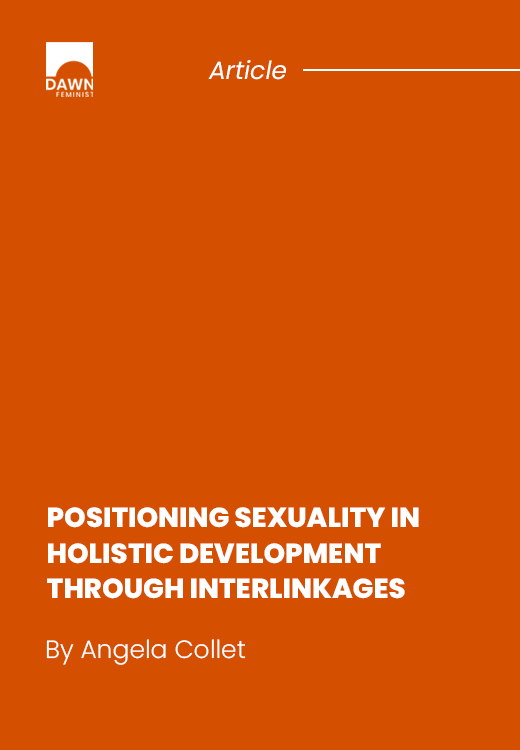Excerpt from Angela Collet’s Presentation at the UNRISD NGO Consultation, Geneva, 12-13 January 2009
The last decade has witnessed major steps forward in legitimising a more holistic approach to “development”, which has led to efforts that address inequality and poverty through a multi dimensional approach, taking into account empowerment, freedom, well-being and human rights. In parallel, political and policy advocacy around sexuality issues and related areas has evidently become more visible both at the national and global levels, as exemplified by the international debates on HIV-AIDS, sexual rights and more recently, the articulation of human rights principles to tackle discrimination and violence related to sexual orientation and gender identity (Yogjakarta Principles; December 2008 GA Declaration). While one could think that aspects relating to sexuality would come into this debate as one of the key dimensions of human development, main obstacles remain, which make it difficult to more fully incorporate sexuality as development priority.
This “silence” is not surprising as sexuality has always been controversial and triggers many conflicts at both societal and policy levels. In the last decade, moral conservatism has gained space in the international development arena as illustrated by millions of dollars being invested by the Bush administration to promote abstinence or initiatives aimed to deny young people access to information and contraceptive methods, to attack abortion rights or to restrict funding for organizations that support sex workers rights. For reasons of politics or religion, these forces oppose the granting of sexual rights and freedoms to those who fail to conform to their prescribed norms. These trends are contested at all levels by sexual rights activism that is attaining unprecedented levels of global-local connectivity.

